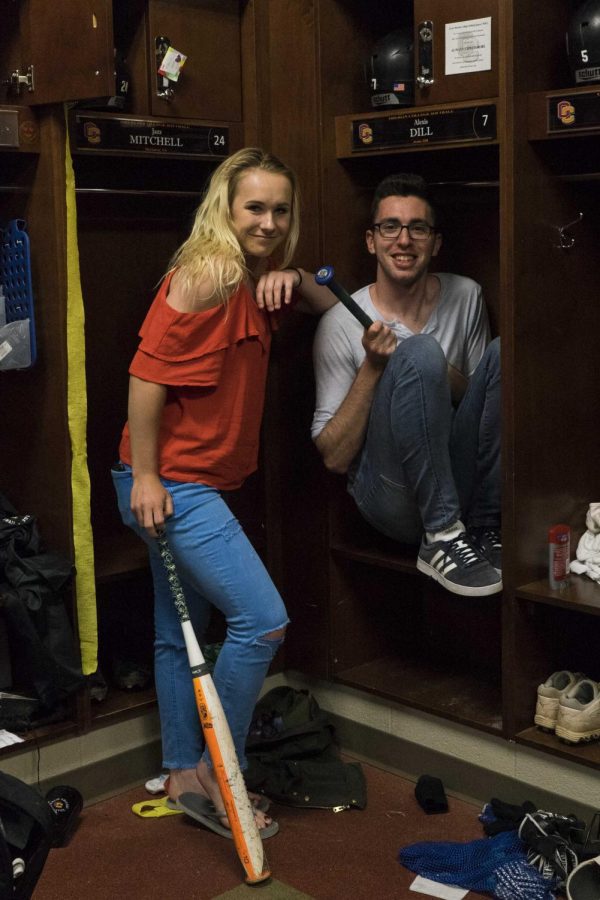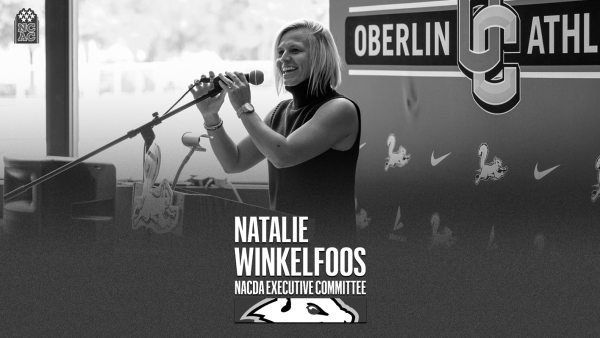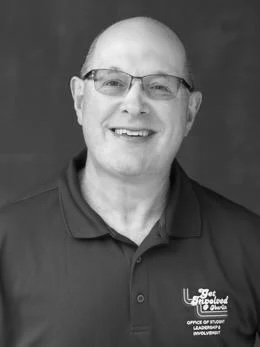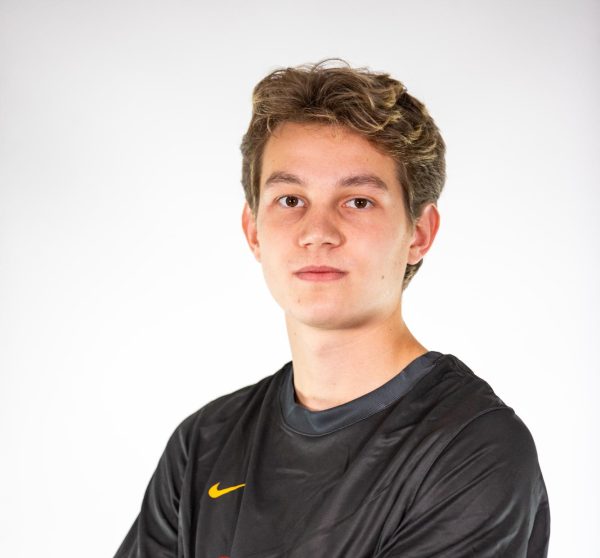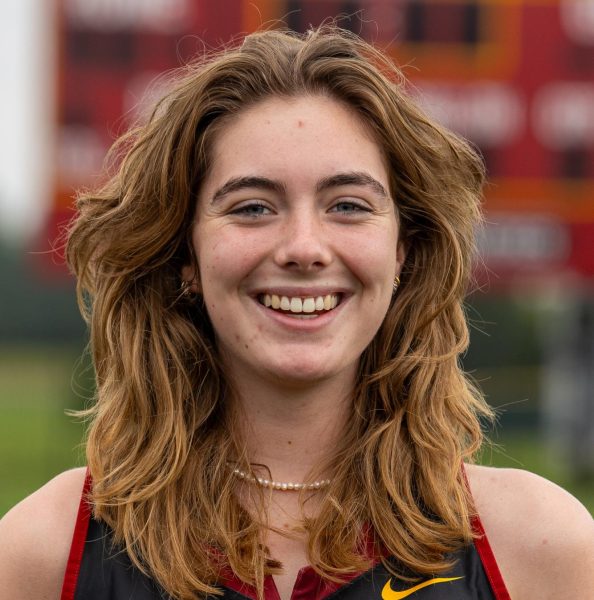In The Locker Room with Alex McNicoll and Alexis Dill, Sports Editors
Alexis Dill and Alex McNicoll
Sophomore Alex McNicoll has spent four semesters with the Review, serving as a sports editor for three. Sophomore Alexis Dill has been a sports editor for one semester and worked as a news editor last semester. This issue is McNicoll’s last as a section editor for the Review, while Dill will return in the fall.
This interview has been edited for length and clarity.
Alexis Dill: What were some of the most rewarding parts of your experience at the Review?
Alex McNicoll: This is an easy one. I started working for the Review in October of my freshman year. [I had] been writing for a while, and at first it was just something to do. The spring semester was when I really got involved in the office. I started going to staff meetings, and I didn’t know anybody on staff except for Darren [Zaslau, OC ’17] and [senior] Jackie [McDermott]. At my first section editor meeting, Kiley [Petersen, OC ’17] said we got an email from [Kendal at Oberlin], the retirement home, and they said they loved our newspaper and wanted to order more. They sent this really sweet email, and before that, I had always written with the mentality that no one read our paper. It was nice knowing that there are people out there who are excited to read our stuff. It definitely gave me motivation to come back for another year. That was rewarding.
AM: In a lot of your articles, you like to focus on people and humanizing athletes. Why do you have this tendency?
AD: I love storytelling. Before I became a sports editor, I wrote a column for the section about my relationship with my dad and our bond over baseball, and that’s still my favorite article I’ve ever written. I also wrote a piece on mental health, and that was another article that was really important to me because it was personal. I was inspired after athletes like DeMar DeRozan and Kevin Love came out and said they battle mental illness. It’s an important issue that doesn’t get the attention it deserves. People tend to forget that athletes are human.
One of my favorite things about sports is that it brings out the best in people. I love seeing how passionate people are and how they can be great teammates and leaders. I love watching people become their best selves through sports, and I’m grateful to be able to write about it.
AD: What is your favorite article you have ever written for the Review?
AM: If I had to pick one, I would have to say this one baseball column that I wrote. Over the summer and whenever I’m hanging around my friends from [back home], we always get into heated conversations about sports. I captured a lot of the funny conversations we had in this specific article — weird theories about the MLB balls being juiced and how the game is changing. But I also made some relevant points. I always like writing articles that anybody can read. You don’t have to be a sports fan to read and understand it. I think this is one that was easy to read and interesting, and if you read it, you would be well-equipped to talk about the topic. If you were a fan of the game, you could agree with it or go against it. There’s always room to add to the conversation.
AM: Whether it’s real or imagined, there tends to be a negative vibe toward sports on this campus. How does that affect your work?
AD: One of the pieces I’m most proud of having written was about our own Athletics department. I shed light on all of the positive things going on there under the leadership of [Delta Lodge] Director of Athletics Natalie Winkelfoos. Most student-athletes aren’t aware that most of our facilities are built or renovated because of the generosity of alumni and donors who aren’t even super connected to the school. They just buy into what Oberlin is all about. I was really proud of that piece because it was picked up by the D3.ticker, which is a weekly newsletter that is sent out to athletic administrators all over the country. It was one of the most-viewed pieces, and I’m really happy that Oberlin got the positive recognition that it totally deserves. I think a lot of great things are happening within athletics on this campus, and I don’t think many people know it. I know non-athletes have really added to my experience as an Oberlin College student by exposing me to new things, and I hope that they learn some things from the athletes here as well.
AD: What will you miss most about working at the Review?
AM: The thing about the Review that is kind of maddening but also pretty special is that it is always changing. One week I have one co-editor, and the next I have another. Every person I’ve worked with has brought something to the newspaper that is awesome and has helped it grow. Everyone brings something different to the table and is really dedicated. They make it more than just a job or a “fifth class.” People mold their lives around it a little bit. I remember during last commencement, a lot of alumni came into the office, including a sports editor from like 30 years ago. It’s kind of fun to think about how many different personalities and ideas have gone through this office. It’s just a great place to be. I’ve seen the sports section become more intellectual and mature. We’ve had some interactive columns where people can read something that maybe they hadn’t seen somewhere else. I’ll miss the enthusiasm I had when I got my game pieces. Who am I hitting up this week? What mysteries am I uncovering? It was just fun to go and ask people about something that was important to them. I’ll miss putting in the hours every week.
AM: What are your plans for the section next year?
AD: I want more contributing writers, and I want them to tell their own stories. Like I said earlier, I love storytelling, and no one knows your story better than you do. It would be great to get more voices in our section. I love reading about what drives people — why they play, what they play for.
If people want a recap of a game or a preview of a team, they can go to GoYeo, [the Oberlin Athletics website]. I really want to differentiate our section from GoYeo. The key to that is setting up more interviews and asking thoughtful questions that will invoke insightful responses. A great story is always dependent on asking the right questions and digging deep.


